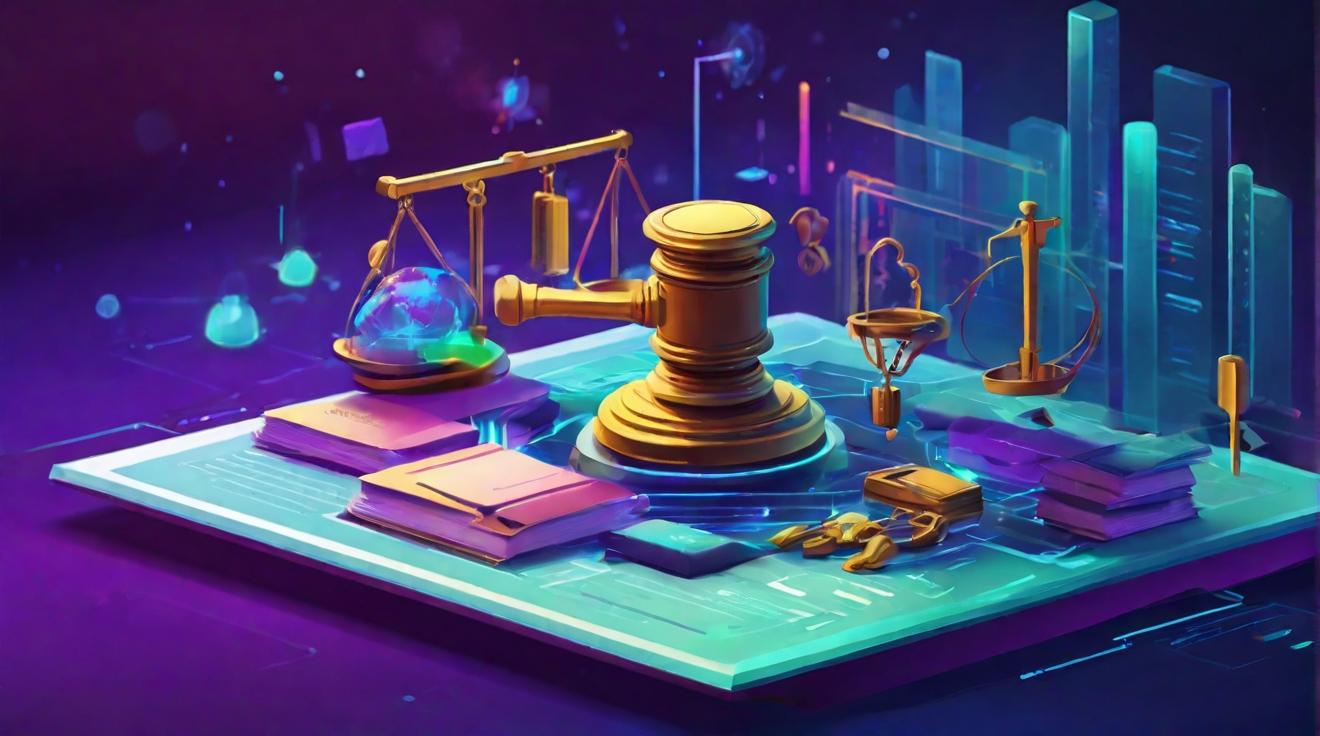Blockchain Revolutionizes Legal Tech: Transforming Contract Management and Legal Processes
In the ever-evolving realm of legal technology, a significant transformation is underway, courtesy of blockchain technology. This groundbreaking development is poised to redefine traditional contract management and legal processes, introducing unparalleled levels of efficiency, security, and transparency.
Unveiling the Potential of Blockchain in Legal Tech
Blockchain's entry into the legal sector marks a pivotal shift towards digitization, addressing long-standing inefficiencies and opacity. At its core, blockchain provides a decentralized ledger, offering a secure and immutable record of transactions. This feature is particularly appealing to legal professionals, who are constantly dealing with sensitive information and complex contract management tasks.
Streamlining Contract Management with Smart Contracts
One of the most notable applications of blockchain in legal tech is the advent of smart contracts. These digital contracts automatically execute and enforce the terms of an agreement, without the need for intermediary oversight. The implications for contract management are profound, promising to significantly reduce administrative overhead, eliminate errors, and shorten the time frame of legal transactions.
Enhancing Legal Processes through Transparency and Security
Blockchain technology also introduces enhanced levels of transparency and security to legal processes. Every transaction on a blockchain is recorded in a way that is both transparent and immutable, meaning it cannot be altered or deleted. This feature not only deters fraud but also provides a clear and indisputable record of legal agreements and transactions, facilitating dispute resolution and regulatory compliance.
The Challenges Ahead
Despite its potential, the integration of blockchain into legal tech is not without challenges. Issues such as data privacy, regulatory acceptance, and the digital divide pose significant hurdles. Moreover, the legal profession, known for its caution and adherence to tradition, may be slow to adopt these cutting-edge technologies.
Embracing the Future of Legal Tech
As we stand on the brink of a new era in legal technology, the question is not if blockchain will revolutionize the sector, but when. Forward-thinking law firms and legal departments are already exploring how to leverage blockchain to improve contract management and streamline legal processes. As these technologies mature and overcome existing hurdles, the legal profession may well witness a profound transformation, making legal services more efficient, secure, and accessible than ever before.
In conclusion, the integration of blockchain technology into legal tech heralds a new dawn for contract management and legal processes. By embracing this innovation, the legal industry can look forward to a future where legal transactions are more streamlined, secure, and transparent, benefiting professionals and clients alike.













